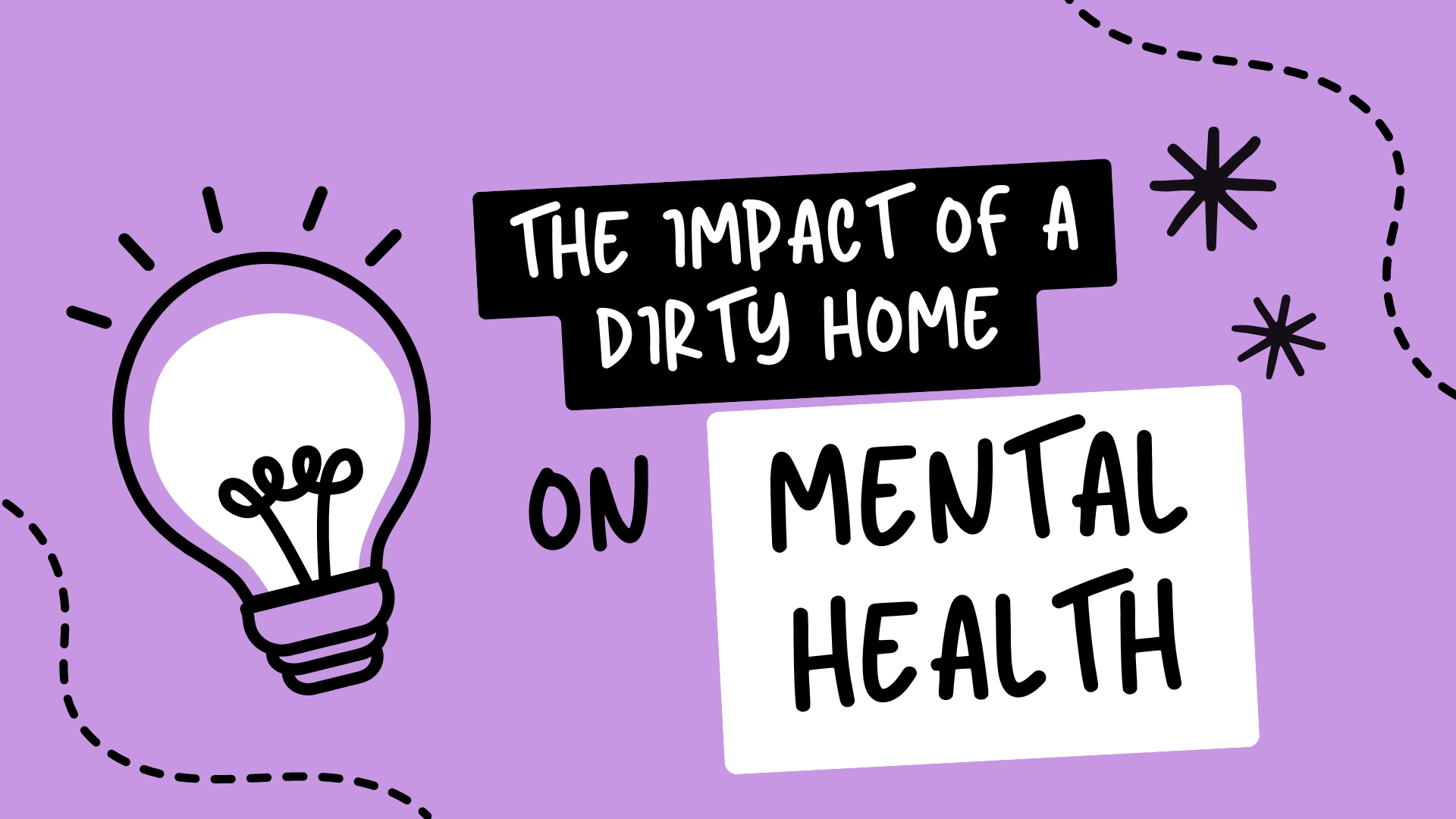a House and Apartment Cleaning in Jersey City and Surrounding Areas

September 10, 2026
The Impact of a Dirty Home on Mental Health
Maintaining a clean and organized home is not merely about aesthetics or comfort; it has significant implications for our mental health. Living in a cluttered and dirty environment can adversely affect our psychological well-being in various ways, contributing to stress, anxiety, and other emotional challenges. This article explores how a messy home can influence mental health and offers strategies to mitigate the negative effects.
1. Stress and Anxiety: The Burden of Clutter.
A cluttered and dirty environment can significantly elevate stress and anxiety levels. Visual clutter can be overwhelming, creating a sense of chaos and lack of control. The human mind perceives clutter as a threat, triggering the body's stress response. Research has shown that people living in cluttered homes have higher cortisol levels (stress hormone).
Moreover, a dirty home can induce anxiety through the constant feeling that one is never doing enough to keep the space orderly. This constant pressure can make it increasingly difficult to meet personal or external expectations, exacerbating stress.
2. Impact on Emotional Health and Mood.
The environment we live in affects our mood. A dirty home may reflect our internal emotional state. Disorganization and filth can intensify feelings of sadness, hopelessness, and frustration. Physical clutter is often associated with mental clutter, creating a cycle in which negative emotional states persist.
The lack of a clean and organized space can diminish one's ability to relax and enjoy the home—a place that should be a sanctuary. When the environment is disorganized and dirty, finding some peace and calm becomes a challenge, which is essential for emotional well-being.
3. Effects on Self-Esteem and Motivation.
Living in a cluttered home can negatively impact self-esteem. The perception of being unable to keep the house organized can lead to feelings of failure or inadequacy. This impact on self-esteem can reduce motivation in other areas of life, creating a cycle of discouragement and disorganization.
Furthermore, clutter can make daily tasks more overwhelming; reducing the motivation to engage in routine activities and daily tasks. The lack of organization can hinder goal-setting and progress, affecting one's sense of personal achievement.
4. Strategies for Maintaining a Healthy Environment.
Despite the challenges, there are effective strategies to maintain a clean and organized environment that supports mental health. Here are some recommendations:
- Establish Routines: Creating a regular cleaning routine can help keep the home in order and reduce the stress associated with clutter. Setting specific times for household tasks can make maintaining the home more manageable.
- Break Down Tasks: Dividing cleaning tasks into smaller, manageable steps can make the process less overwhelming. Instead of tackling a deep cleaning project, focus on daily or weekly tasks.
- Create Comfortable Spaces: Ensure that your home includes areas dedicated to relaxation. A well-maintained and cozy environment can positively contribute to emotional well-being.
- Seek Help if Needed: If clutter and dirt have become a significant problem, consider seeking professional help. Occupational therapists or organization specialists can provide additional strategies and support.
Conclusion
A dirty and disorganized home can have a profound impact on mental health, increasing anxiety and stress stress, and also affecting mood and self-esteem. A great idea would be adopting strategies to maintain a clean and organized environment. We can enhance our psychological well-being and create a home that supports mental health. Ultimately, a tidy environment enriches our quality of life and fosters a healthy and balanced mind.
Contact Us
Feel Free To Contact For Any Kind Of Query.
hidden
hidden
hidden
Thank you for your interest in hiring Irene's Cleaning Service Company. We consider communication with the customer.


